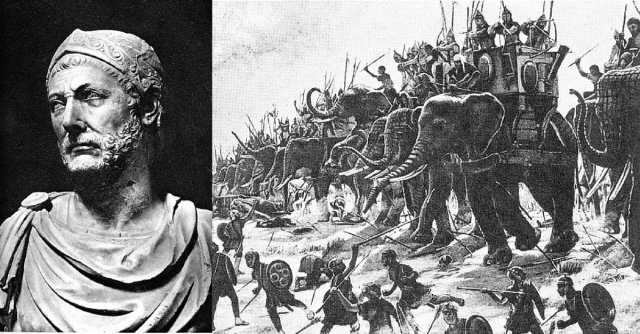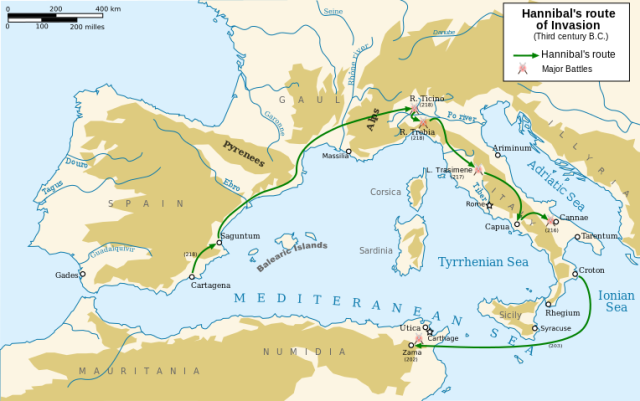
Hannibal Barca inflicted one of the worst defeats ever suffered by the Roman army at the battle of Cannae. Nearly 70,000 men were killed in the heart of Italy by Hannibal’s much smaller army. This was far from the only disaster that Rome suffered in the early years of the Second Punic War. Hannibal played on the Roman general’s over-aggression at the battle of the Trebia River and ambushed the Romans after they crossed a freezing river.
The next year (217), Hannibal hid his entire army in the hilltops near Lake Trasamine and essentially annihilated the pursuing Roman army. Cannae would absolutely decimate the Romans only a year later, why then could Hannibal win all these battles, but failed to win the war?

Hannibal was not the greatest at sieges and assaults
Hannibal’s cavalry commander Maharbal, supposedly uttered the famous phrase: “Hannibal, you know how to gain a victory, but not how to use one.” This was after Hannibal declined to besiege Rome following his victory at Cannae. A major reason was due to Hannibal being far less skilled at sieges than field battles.Hannibal did try to take advantage of his success after Cannae by assaulting the town of Nola in Italy. The small, but fortified supply town was fiercely defended by general Marcellus of Rome, and Hannibal was repulsed from Nola three separate times from 216-214. Even Hannibal’s most successful assault onTarentum was due to treachery, and even then the defenders held the citadel for years and eventually broke out and recaptured the main city.
2. Even in Success, Hannibal could not get Carthaginian Aid
Hannibal invaded Italy in 218 BCE, and remained in the boot of Italy for fifteen years, leaving only to confront Scipio in Africa in 203 BCE. Despite winning several massive victories, he was only officially resupplied once and only two other Carthaginian armies made it to Italy during the war (though none could link up with Hannibal). There are two main reasons for the Carthaginians lack of support to their most successful general.
Had Carthage made more of an effort to give Hannibal men, the extra force may have been enough for Hannibal to carry out more decisive actions. Even the main army sent to Italy near the end of the war was only sent after losing a battle in Spain.
Secondly, even if Carthage had definite plans to reinforce Hannibal, and the above interpretation may be too harsh towards Carthaginian strategic planning, they would have a difficult time doing so. Carthage had always been a dominating naval power, but the titanic sea struggles of the first Punic War exhausted their navy while giving the Romans naval experience and a new understanding of the importance of naval dominance.
By the time of the second war, Rome’s navy absolutely ruled the Western Mediterranean. They had more ships and better crews. A few early Roman naval victories over the Carthaginians of the coast of Spain proved this. Carthage was able to slip one naval supply through to Hannibal, but it was far too risky to do so on a regular basis, any ships captured would only serve to strengthen Rome’s naval power even more. This is also why the resupplying armies had to come in from the north, which gave the Romans an opportunity to intercept them as they did at the pivotal battle of the Metaurus.

Δεν υπάρχουν σχόλια:
Δημοσίευση σχολίου